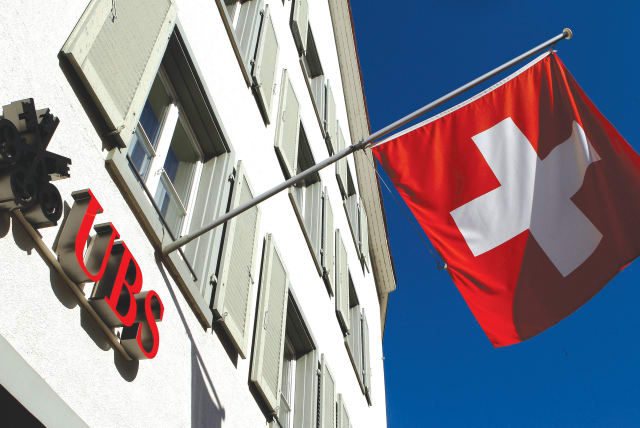The main principles for opening a bank account abroad - comment

According to reports, the number of companies opening bank accounts outside Israel is expected to increase if the crisis continues.
Recent political events, and the economic climate, have spurred reports about leading Israeli tech companies taking action to withdraw money from Israel, and dozens of other CEOs – and private citizens – looking for ways to secure their financial future and savings.
According to reports, the number of companies opening bank accounts outside Israel is expected to increase if the crisis continues.
Hi-tech entrepreneurs and multinational companies that raise money from international investors are already used to financial activity handled by international banks. Well-established businesspeople have been holding money and securities in foreign bank accounts for many years. The current situation, particularly in light of the presence of representative offices of foreign banks in Israel and the availability of information on social networks, has made the process of opening foreign bank accounts much more accessible.
Representatives of foreign banks in Israel report that the process for opening foreign bank accounts, which used to take only a few days, has now been drawn out to a month, or more, due to the backlog of inquiries from Israeli individuals and companies.
Increase in Swiss bank accounts
Swiss banks report that there was already a significant increase in opening accounts and deposits of foreign entities during the COVID-19 pandemic and the invasion of Ukraine, and due to crises in certain countries where civilians are worried about possible future restrictions on withdrawing funds from the country.
However, paradoxically, the scope of foreign exposure of every citizen in the country to foreign assets varies between 37% and 57%, in the framework of current deposits, into provident and pension funds. Investments by provident and pension funds vary between foreign securities, foreign currency and even physical assets outside of Israel.
Since provident and pension funds manage approximately $1.3 trillion for the public, due to the tremendous scope of the assets that are managed, the citizens of the country have foreign exposure through provident and pension funds of hundreds of billions of dollars.
Therefore, since it is clearly natural to hold and manage investments outside of Israel, and to expect that foreign investors will invest in Israel – in a similar manner to investments in securities of foreign companies that are traded on stock exchanges outside of Israel – it is important to examine the different alternatives and options for Israelis opening bank accounts abroad.
Swiss banks are very popular for Israelis
THE MOST popular banks for Israelis are Swiss banks. According to accepted current estimates, a third of the total capital held outside of the country of origin is in Switzerland.
This is due to the country’s famous banking system, its neutral status, central location and a conservative country, with regulations in favor of privacy and economic freedom. For instance, a 1934 law states that a breach of banking secrecy constitutes a criminal offense in Switzerland.
Although popular, American banks pose possible exposure to US tax laws, including estate tax, for Israeli investors. Other European banks are less popular, due to language and communication limitations, and in some cases due to the size of the bank, the international credit rating of the country and the stability of the country’s government.
The threshold condition for opening bank accounts in Swiss banks varies. Certain banks, such as Citibank, have established a minimum requirement of $10 m. for opening an account, while other banks have lower minimum capital requirements of a million dollars (such as Bank Safra, Julius Baer and others). There are also options for opening a bank account in Switzerland with as little as $500,000 (such as with UBS).
Identification documents are required in order to open an account, including proof of address, identification number with the tax authorities, documents attesting to the source of the funds, and tax payments on them.
At a large number of foreign bank accounts opened by Israeli investors, the investments are managed by an Israeli or Swiss portfolio manager. The portfolio manager’s fee usually constitutes 0.8% of the scope of the portfolio that is managed, and the bank itself charges a fee of 0.15% – 0.20% as a purchase or sale fee, and 0.15%-0.20% as a maintenance fee.
With respect to certain securities (such as shares or financial instruments that follow indexes), a stamp duty of an additional 0.15% must be paid in Switzerland to the Swiss authorities. There are arrangements with banks in which a fixed purchase and holding fee is paid, irrespective of the number of transactions performed in the account.
Money in such an account can be managed by an Israeli or Swiss portfolio manager, each of which has its own obvious advantages. While with an Israeli portfolio management, communication is in Hebrew, a Swiss portfolio manager brings extensive familiarity with accepted financial assets and local regulations in Switzerland.
The vast majority of banks accept deposits in dollars, euros or pounds; however, in a few cases, Swiss banks agree to accept deposits in shekels.
Following the 2008 financial crisis and various developments in the public mindset with respect to tax havens, tax evasion and foreign accounts, global regulation has tightened and is increasing with respect to supervision and transfer of information about international bank accounts. Currently, the Swiss authorities report once a year to the tax authorities in Israel about Israelis who have bank accounts in Switzerland.
Investment through Israeli banks versus through foreign banks
THE DIFFERENCE between an investment through a bank in Israel and an investment through a foreign bank, from a tax-law perspective, is insignificant. Tax in Israel is personal, 25% on capital gains (which includes income from interest, dividends and the sale of securities), regardless of the location of the investment.
The main difference is that outside of Israel, there is tax deferral, and tax is paid at the end of the year. This is unlike in Israel, where the bank withholds tax at source on the date of sale of securities or payment of dividends. In Switzerland, tax does not have to be paid on income, and an Israeli holder of an account reports and pays tax on the profits connected to their account once a year, as part of their report to the Israeli tax authorities.
The largest banks in Israel (Bank Hapoalim and Bank Leumi) have representative offices outside of Israel, primarily in the United States, which offer limited opportunities to open bank accounts outside of Israel. However, these are usually commercial accounts for companies, not for individuals, which serve foreign operations of Israeli corporations. The account opening process is extremely simple, especially when the account owner has a bank account in Israel. However, such accounts may be less relevant for an investor who wants to diversify their investment risks.
To summarize, the current economic crisis has turned the lights on with respect to investors’ options for diversifying their investments outside of Israel. In the coming weeks, we will almost certainly see billions of shekels of Israeli investors making their way to investments outside of Israel. This does not have to be treated as a tragedy, but rather as a maturity process of Israeli investors in the global markets – just as we purchase clothing from international brands and not only local brands.
Nevertheless, taking into consideration that a significant proportion of investors are conducting the process for the first time, the substantial amount of documents in English that have dramatic ramifications for the investor’s rights, and taking the scope of investment into account, it is important that proper advice is received regarding opening and managing an account, while understanding the various options, their advantages, disadvantages and impact on the investor’s rights.
The writer is head of the Capital Markets Practice Group at Pearl Cohen Zedek Latzer Baratz law firm.
Jerusalem Post Store
`; document.getElementById("linkPremium").innerHTML = cont; var divWithLink = document.getElementById("premium-link"); if (divWithLink !== null && divWithLink !== 'undefined') { divWithLink.style.border = "solid 1px #cb0f3e"; divWithLink.style.textAlign = "center"; divWithLink.style.marginBottom = "15px"; divWithLink.style.marginTop = "15px"; divWithLink.style.width = "100%"; divWithLink.style.backgroundColor = "#122952"; divWithLink.style.color = "#ffffff"; divWithLink.style.lineHeight = "1.5"; } } (function (v, i) { });


